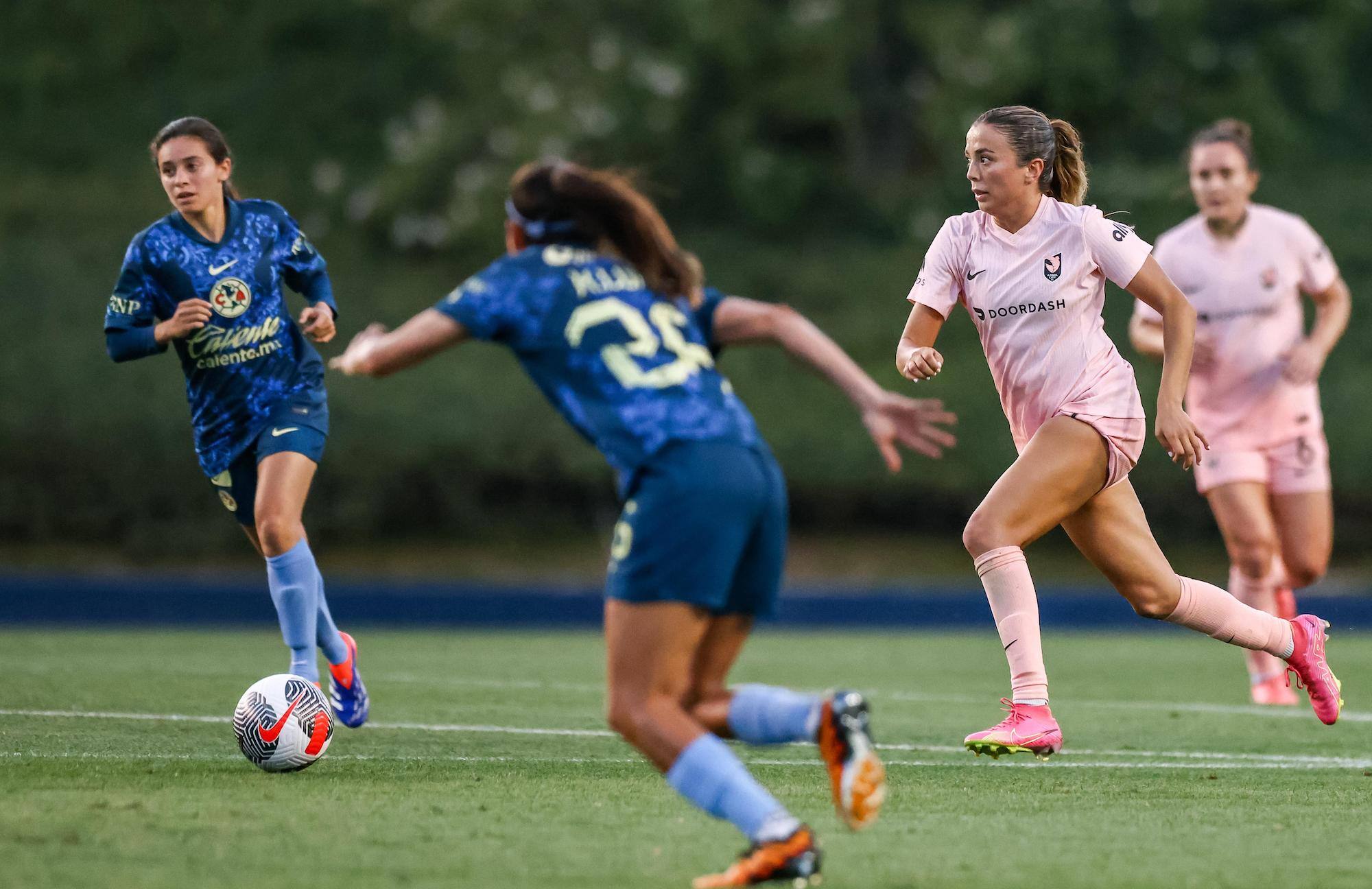
Welcome to The Breakdown, where Angel City players break down the basics of the game to help you understand what they do on the pitch. This week, we talked to defender Madison Curry about outside backs.
AngelCity.com: Could you start by giving us an overview of what an outside back does?
Madison Curry: Defensively, we're a part of the back line with the center backs. So in a traditional four back, our job is mostly to defend anything that comes into the wide channel. Typically that's a winger, but these days it could be anything from a No.10 [a central attacking midfielder] to an opposing outside back. And then, in the modern game, another big role of an outside back is to get forward and contribute to the attack. Especially in our system, we love to get outside backs high and as close to the goal to affect things up there as possible.
ACFC: What characteristics does an outside back need to be successful?
MC: You have to have an open mind and be willing to fail a little bit, because there's so many little nuances that go into it. You honestly have to be able to run a lot—that can be worked on, but you mostly see fast players out there. And you have to have good defending skills too, because especially on this team, your attacking qualities are important, but you really have to be able to hold it down back there, too, especially in a league with such [attacking] talent out wide.
ACFC: Talk about the differences between defending in wide areas as an outside back, as opposed to closer to the center of the field as a center back.
MC: I think defending out wide is a little bit easier in the sense that you have a direction you want to force [your opponent] in. You always want to force them wide, outside of your team’s structure. That's the least dangerous—keeping them away from the goal. You try to sort of screen them as wide as possible until they take, say, a bigger touch, where you think you can go and tackle, or get your body in the way, or stop the cross. There's usually a little touch of separation that the attacker tries to do, and that's the best way to get in and defend.
Centrally, there's a lot more in little nuances in body position and stuff. You always have to be side-on. This league is so fast, and if you're not, you get punished for that really quickly. You also have to be careful if you're in the box to not tackle as much as you might be able to out wide.
ACFC: Could you define “side-on” for us?
MC: On a soccer field, imagine my whole body is facing forward. I'm not in a good position to turn around and run backwards to my own goal. So side-on means you’re halfway between those two, facing sideways, so you can go either direction quickly.
ACFC: What’s an outside back’s role in the offense?
MC: Traditionally, I think outside backs help a lot getting crosses into the box, whether that be helping a winger get there or making overlapping runs with the ball around the winger.
I think specifically within our system, we build out on a three back, so sometimes that sees me getting more into the central pocket and driving it in with a lot of time and space. In those moments, it's about picking out the right ball into the final third. It's not always wide—it could be to a No.10 like I did against Louisville with Kennedy being there. So I think in this system, an outside back’s goal is always to get your attackers beyond the back line as quickly as possible and in the best space.
Being high also allows us to counter press really well and keep the ball up higher.
ACFC: One more definition request—what’s counter pressing?
MC: Basically, if we lose the ball, it's much more ideal to get it back closer to the opponent's goal rather than sort of drop off and let the ball get close to our goal. Double-transition moments, which is when a team loses the ball and then the other team loses it back right away, those are really big moments in the game when goals are likely to happen. So we try to create as much chaos as we can.
ACFC: What do you need from the players around you to be successful as an outside back?
MC: First, we need a lot of communication from our center backs. It's not always the right time to go out to the winger and press. Sometimes we have to stay really compact, depending on the moment in the game, the pressure, and all that. So we need a lot of communication from them, because we're all a unit. The winger has to support us, but mostly we're telling the winger where we want the ball to go. That's a really important relationship. And then the No.6s [defensive midfielders] can also help us if they're out of position to tell us to tuck in or we tell them to do the same.

